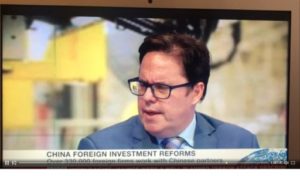
China is moving fast on setting up legislation on the development of autonomous driving cars in China, in tandem with the fast technological and commercial developments, writes China-lawyer Mark Schaub in the China Law Insight. These detailed regulations will have a significant and positive impact on the industry, he adds.
The China Law Insight
The Ministry of Public Security Draft Proposal and the Shenzhen Draft for Public Comments mark the first step in China’s legalisation specifically for autonomous cars. These regulations will have a significant and positive impact on the development of autonomous cars in China.
Their provisions on liability will directly impact the development of technologies and business models for autonomous cars in China as well as requiring changes in how contractual arrangements between automated driving system developers and carmakers are made.
Despite the positive elements it should be noted that much is left to be clarified and there are already issues in respect of how to ensure consistency between laws. The classification of autonomous cars in the Shenzhen Draft Regulations seems to differ from that outlined in the MPS Proposed Amendments.
The term “autonomous cars equipped with drivers” in the Shenzhen Draft Regulations and the term “autonomous cars equipped with automated driving functions and manual operation modes” in the MPS Proposed Amendments seem to both primarily refer to conditionally automated vehicles (i.e., level 3). However, the two terms are expressed differently and the responsible party for traffic violations and liability also differ. While the MPS Draft Amendments identifies the responsible party to be the driver or the automated driving system developer, the Shenzhen Draft Regulations defines the responsible party to be the driver, manufacturer or distributor. The question of how to maintain consistency on liability for traffic violations or accidents of autonomous cars in the legislations may be an important consideration in the subsequent revision of these pieces of draft legislation.
Although the relevant provisions of the MPS Proposed Amendments and the Shenzhen Draft Regulations are still in draft form (and therefore the final official versions are likely to undergo significant amendment), the two drafts will undoubtedly directly drive China’s legislation in the field of autonomous cars and therefore have a profound impact on the commercialization of autonomous cars in China.
More at the China Law Insight.
Mark Schaub is a speaker at the China Speakers Bureau. Do you need him at your (online) meeting or conference? Do get in touch or fill in our speakers’ request form.
Are you looking for more strategic experts at the China Speakers Bureau? Do check out this list.
